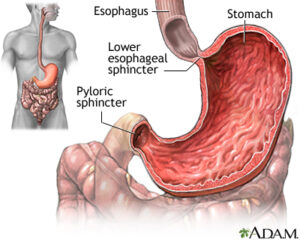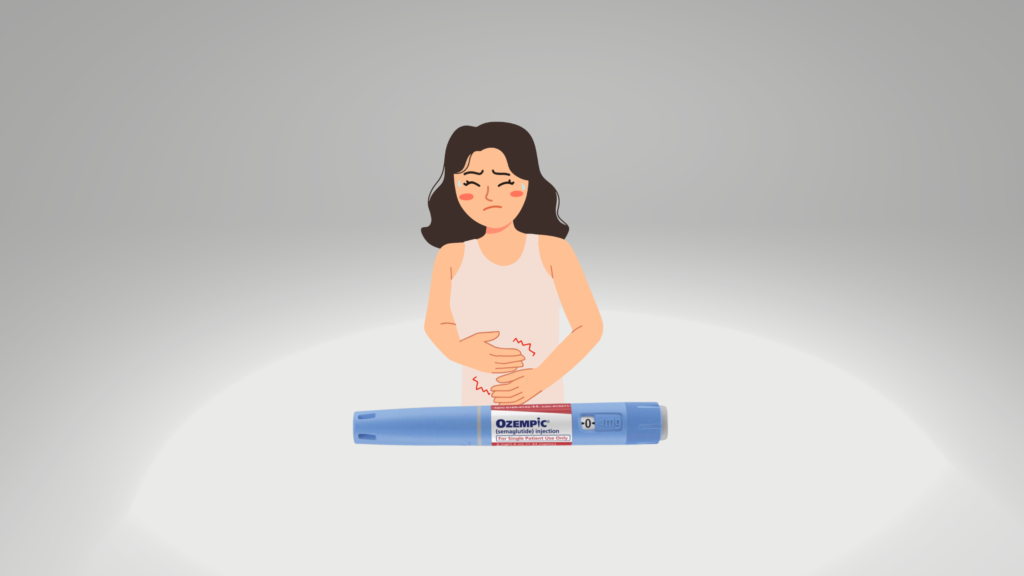—
The following is a transcript of the “Ozempic Paralyzed my Stomach” video posted on YouTube.
Emerging Concerns: Ozempic Linked to Stomach Paralysis
 So if you haven’t heard the news lately, it looks like Ozempic, the blockbuster medication for diabetes and weight management, is causing stomach paralysis. I can piece together from the news articles that individuals took Ozempic and ultimately developed full-blown stomach paralysis even after discontinuing the medication.
So if you haven’t heard the news lately, it looks like Ozempic, the blockbuster medication for diabetes and weight management, is causing stomach paralysis. I can piece together from the news articles that individuals took Ozempic and ultimately developed full-blown stomach paralysis even after discontinuing the medication.
And in fact, it was so severe for one individual that she had to undergo bariatric gastric sleeve surgery to correct the issue. So Ozempic is what we call a GLP-1 receptor agonist. And that means it mimics or acts very similarly to the hormone GLP-1 that our body naturally produces.
So when you eat food, GLP-1 gets released from your intestines, and it helps to manage your blood sugar levels and helps to create the feeling of fullness to tell you to stop eating. And ultimately, in those ways, it helps to manage blood sugars and allows us to lose weight.
Before we go any further, let’s talk about what exactly stomach paralysis is. The medical term for this stomach paralysis they’re talking about is gastroparesis. And gastroparesis is defined as a slowing of gastric emptying or how quickly food is going from your stomach to your small intestine.
Understanding Gastroparesis: The Slowing of Gastric Emptying

You see, when you have food in your stomach, you have a small little sphincter (The pyloric sphincter)? that kind of is the gate between your stomach and the intestine. And that gate, whether it’s opening or closing correctly, will decide how quickly food moves through there. And if, for whatever reason, that gate is not working very well, well, that can slow down that process, and food and stuff will end up hanging out in your stomach. And, well, if it’s not going down, the only way it has to go is back up. So the side effects or symptoms you can then experience are nausea, vomiting, heartburn, maybe a decrease in appetite, bloating and that sort of thing.
 And yes, in very severe situations, your stomach could be paralyzed, so food is not moving through at all, in which case, it is going to be a life-threatening and serious condition.
And yes, in very severe situations, your stomach could be paralyzed, so food is not moving through at all, in which case, it is going to be a life-threatening and serious condition.
So then, what is this connection with Ozempic, and why do we think it might be causing this stomach paralysis? Well, you see, the GLP-1 hormone and, ultimately, medications like Ozempic do cause some level of gastroparesis or some level of slowing how quickly food moves from that stomach to your small intestine—the reason why the GLP-1 hormone does this naturally is for the process of digestion.
It is slowing down and allowing food to sit in your stomach for a longer period of time. That is going to tell you when to stop eating, but it’s also going to allow your stomach to beat up and pulverize the food that you’ve just eaten so that when it goes to that small intestine, it’s more broken down and the nutrients can be better absorbed from your food.
When it comes to the GLP-1 medications, that is what’s going to be causing a lot of the side effects people experience. Initially, the nausea, vomiting and heartburn slow gastric emptying. But this should be temporary for both the naturally produced GLP-1 hormone and the medications like Ozempic. Ultimately, the gastric emptying speed should speed back up to a normal rate.
A Complex Analysis of Stomach Paralysis Possibilities
 So, therefore, it’s not out of the realm of possibility that Ozempic could be causing this stomach paralysis. However, when we look at the clinical trials where tens of thousands of individuals have been given Ozempic, and we look at the adverse effects, we never got any reports of stomach paralysis that is permanent. Yes, we did see the slowing of gastric emptying, as we would expect with the GLP-1 medications, but we never got the full-blown and permanent stomach paralysis that required something like a gastric sleeve to manage.
So, therefore, it’s not out of the realm of possibility that Ozempic could be causing this stomach paralysis. However, when we look at the clinical trials where tens of thousands of individuals have been given Ozempic, and we look at the adverse effects, we never got any reports of stomach paralysis that is permanent. Yes, we did see the slowing of gastric emptying, as we would expect with the GLP-1 medications, but we never got the full-blown and permanent stomach paralysis that required something like a gastric sleeve to manage.
Further, when we go out to the real world, where we now have hundreds of thousands of individuals on Ozempic, it seems that maybe there is only this handful of people now being shown to have this stomach paralysis. So we can infer from that potentially that if it is occurring due to Ozempic, it’s occurring at a very, very low rate.
But the other thing that we need to tease out is that other factors could be happening coincidentally while the person is taking Ozempic. One of the initial factors that we need to look at is in individuals who have had elevated blood sugars, like really elevated and high blood sugar levels, that ultimately have damaged the nerves that control the stomach. And we know that in situations like this with diabetes, people can develop gastroparesis, and it just so happens that Ozempic is used to treat diabetes.
So the big question is, was the gastroparesis already there due to diabetes, and maybe it got worse while they were on the Ozempic, or perhaps the Ozempic worsened it further? We’ve got to look at what other medications people might be on.
Exploring Medication Interactions and Underlying Conditions
 We know certain medications such as narcotics like morphine, codeine and that sort, as well as antidepressant medications and a class of medications called anticholinergics, can also cause gastroparesis.
We know certain medications such as narcotics like morphine, codeine and that sort, as well as antidepressant medications and a class of medications called anticholinergics, can also cause gastroparesis.
One anticholinergic drug, in particular, is Gravel, which many people may use to manage their nausea as a side effect experienced while on Ozempic. So again, was it due to the Ozempic, or was it that they’re on one of these other medications, and the two together had this synergistic effect that ultimately led to stomach paralysis?
Again, we’ve got many questions to answer, and yes, there are other conditions, like if you had surgery and they cut something they shouldn’t have, as well as other conditions, such as hypothyroidism. And some autoimmune disorders can also cause gastroparesis.
So, the big question is, do we need to be worried about Ozempic? Well, I never say never when it comes to medicine, but if Ozempic or the other GLP-1 medications have this potential risk of causing stomach paralysis, it is likely very rare, with less than a 1% chance of it occurring.
In reality, we can’t rule out other confounders and variables that might lead to gastroparesis and stomach paralysis developing permanently. So we need to look at and get more concrete data before fully answering that question.
Navigating Ozempic Usage and Careful Considerations
 If you’re currently on Ozempic or are thinking about going on to Ozempic, I mean, continue to follow up with your care team. If you have a long-standing history of diabetes or already have gastroparesis, or you’re on medications that can lead to it, some adjustments might need to be made. But ultimately, make sure you do the proper screenings with your primary care team to make sure the drug is safe as possible for you.
If you’re currently on Ozempic or are thinking about going on to Ozempic, I mean, continue to follow up with your care team. If you have a long-standing history of diabetes or already have gastroparesis, or you’re on medications that can lead to it, some adjustments might need to be made. But ultimately, make sure you do the proper screenings with your primary care team to make sure the drug is safe as possible for you.
All right, that is it and that is all when it comes to Ozempic and stomach paralysis.
If you got something out of this video, don’t forget to give me a like and subscribe to my channel down below.
And, of course, share this with all of your friends if you think they’ll get something out of it as well. And as always, check me out on my other channel at the official Dr. Dan, and we will see you next week.
—
 Dr. Dan
Dr. Dan
Follow me on social media for regular updates – @TheOfficialDrDan
Subscribe to my newsletter for a heads-up on all new content.
Sharing is caring! Here’s the link for social, email, and even text – https://healthevolved.co/paralyzed-stomach
If you need some coaching support on your weight management journey, you can book a consultation with me to see if you’d be a good fit for our program.
Questions or comments? Please send them my way on our Contact Us page!






